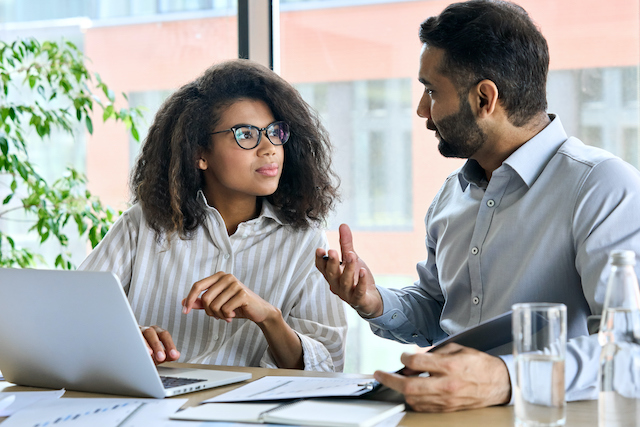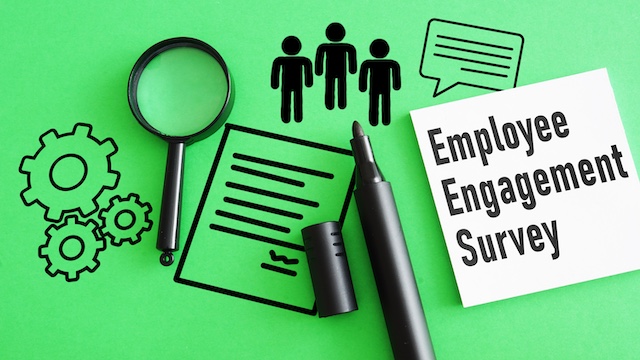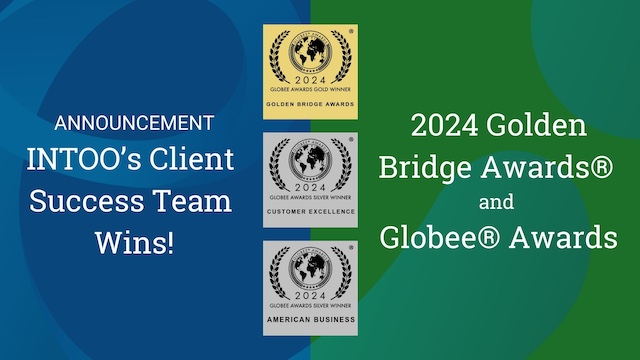Maybe you’ve thought about using a career coach for yourself or wondered if your employees might benefit from coaching services. You might be focused on a single topic, such as goal-setting, how to approach a lateral career move, or developing employees for leadership roles. But there are many ways career coaches can help during every phase of an individual’s career. And expert coaches will know to consider the whole human when guiding an individual through their concerns so that they get the most out of their coaching experience.
57 Coaching Topics to Discuss with Your Career Coach
Typically, coaching topics fall into a few categories: career development strategy, soft skill improvement, wellness, and confidence building. A strong coach will know that most individuals will have overlap in the areas they need help with, even if those individuals aren’t aware of them. A coach will listen carefully and identify areas that might be worth working on, and will offer suggestions on approaches that will help the individual improve in multiple areas at once.
Career development coaching topics
You or your employees may know what they want to accomplish but not know how to go about doing so, or may not have a clue what they want to do in the future. No matter the situation, a career coach can help an individual navigate through identifying interests, skills, and steps needed to reach professional development goals, and build a strategy to get there.
Examples of career development coaching topics include:
- Professional branding
- Presentation skills
- Building a network
- Mentors – how to make the most of a mentorship as a mentor or mentee
- Assessing your skill set, your opportunity areas, and how to acquire the skills you want/need
- Creating career goals
- Identifying and assessing your personal and professional values
- Goal setting
- Negotiation
- Staying motivated
- Influence and gaining buy-in
- How to request, internalize and apply feedback
- Finding your passion
- Relationship building and management
Coaching topics to develop soft skills
Soft skills are personality traits that can help an individual in their career and in other areas of their life. Communication skills, problem-solving skills, time management, collaboration skills and critical thinking are all examples of soft skills.
Examples of soft skills coaching topics include:
- Conflict management
- Effective verbal and non-verbal communication
- Organization
- Becoming a better listener
- Personal presence – how are you perceived vs. how you want to be perceived
- Self awareness
- Emotional intelligence
- Prioritization
- Problem-solving
- Perseverance
- Strategic thinking
- Cross-functional collaboration
- Inspiring others in your sphere of influence
- Accountability
- Innovation and breaking out of the mold
 Career coaching for management
Career coaching for management
Along with other topics in this article, managers have specific concerns that can be addressed with a career coach. Managers can get guidance to help them be better leaders, to assist with challenges they may have with their employees, and to get buy-in for their plans and visions.
Examples of coaching topics for managers include:
- Employee engagement
- Managing an employee with declining performance
- Effective onboarding and building a 30/60/90 day plan
- Performance reviews
- Management skills for leaders and individual contributors
- Delegation
- Identifying and solving for inefficiencies
- Managing a team
- Building team culture
- Managing up
- Building trust and respect
- Creating a vision
- Change management
- Courageous conversations
- Navigating cultural differences
Career coaching for work/life balance
Developing strategies to overcome burnout and balance work with fun activities can help an individual in every area of their professional life. For example, reducing stress, learning to advocate for oneself, and improving time management are all areas that, when mastered, can help someone have the time and energy to focus on their career goals.
Examples of work/life coaching topics include:
- Creating and maintaining healthy work habits
- Time management
- Expectation setting
- Setting boundaries
- Stress management
- Practicing gratitude
- Resilience
- Preventing and identifying burnout
 Coaching to build confidence
Coaching to build confidence
A person’s confidence may or may not be rooted in their abilities. Conversations with a career coach can help an individual identify the causes of low self-confidence and can lead to a strategy to build confidence. This strategy might include exercises, classes to increase skills in a particular area related to the individual’s role, and/or books to read.
Examples of confidence-building coaching topics include:
- Self-confidence and imposter syndrome
- Risk-taking and stepping out of your comfort zone
- Getting out of your own way
- Bouncing back after a failure
- Overcoming challenges
In Summary
If you were wondering what a career coach could help you with, hopefully this article provided ideas. Approach your next coaching session with curiosity and you may find that you learn more about yourself and find motivation and encouragement to achieve your goals. INTOO’s coaches help employees in every stage of their career develop strategies to meet their goals, while employers reap the benefits of increased engagement, productivity, and retention. Learn more about how our career development programs can benefit your company.
Robyn Kern is a seasoned business writer who has written in the HR, education, technology, and nonprofit spaces. She writes about topics including outplacement, layoffs, career development, internal mobility, candidate experience, succession planning, talent acquisition, and more, with the goal of surfacing workforce trends and educating the HR community on these key topics. Her work has been featured on hrforhr.org and trainingindustry.com.


 Career coaching for management
Career coaching for management Coaching to build confidence
Coaching to build confidence








